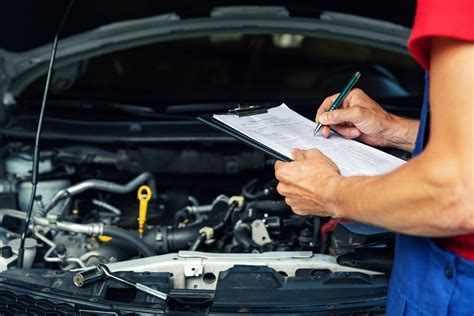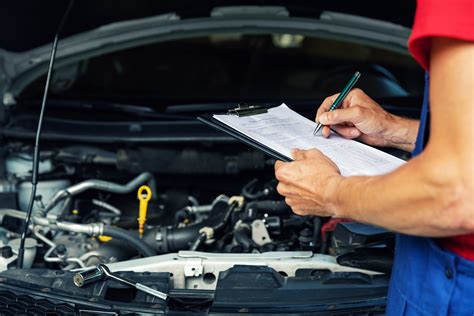

Proper car maintenance is crucial for the longevity and safety of your vehicle. Regular oil changes, tire rotations, and inspections are key!
Car maintenance is an essential aspect of owning a car. It ensures that your vehicle runs smoothly and safely on the road. However, many drivers tend to overlook this crucial aspect of car ownership, which can lead to costly repairs and accidents. Therefore, it’s vital to pay attention to your car’s maintenance needs regularly. From oil changes to tire rotations, regular maintenance can save you money in the long run and keep your car running efficiently. In this article, we’ll delve into the importance of maintaining your car and provide some tips on how to keep your vehicle in tip-top shape.
Daftar Isi
The Importance of Regular Car Maintenance
Regular car maintenance is crucial to ensure the longevity and reliability of your vehicle. Neglecting regular maintenance can result in expensive repairs and even accidents on the road. Therefore, it’s essential to understand the importance of routine car maintenance.
Oil Changes
One of the most important aspects of car maintenance is oil changes. Oil is the lifeblood of your engine, and it needs to be changed regularly to keep the engine running smoothly. Failure to change the oil can lead to engine damage and decreased performance. It’s recommended to change your oil every 3,000-5,000 miles or as specified by your car’s owner’s manual.
Tire Care
Your car’s tires play a crucial role in your safety while driving. Regular tire maintenance includes checking the tire pressure, rotating the tires, and balancing them. Proper tire care can improve fuel efficiency, prevent blowouts, and ensure better handling of your vehicle.
Brake System Checks
The brake system is one of the most critical components of your car. Regular brake system checks include inspecting the brake pads, rotors, and brake fluid. Proper maintenance of your brake system can prevent accidents and ensure your safety on the road.
Fluid Checks
Regularly checking and topping off the fluids in your car, such as coolant, transmission fluid, and power steering fluid, can help prevent major engine issues. Low fluid levels can cause overheating and damage to your engine, resulting in costly repairs.
Battery Maintenance
The battery is responsible for powering your car’s electrical system. Regular battery maintenance includes checking the terminals, cables, and fluid levels. A dead battery can leave you stranded, so it’s crucial to ensure your battery is in good condition.
Air Filter Replacement
The air filter in your car prevents dirt and debris from entering the engine. A clogged air filter can reduce engine performance and fuel efficiency. It’s recommended to replace your air filter every 12,000-15,000 miles or as specified in the owner’s manual.
Belts and Hoses
Belts and hoses are essential components of your car’s engine, and they need to be checked regularly. Worn or cracked belts and hoses can lead to engine damage and overheating. It’s recommended to have them inspected every six months or as specified in the owner’s manual.
Exhaust System Checks
The exhaust system in your car is responsible for reducing emissions and removing toxic gases. Regular checks of your exhaust system include inspecting the muffler, catalytic converter, and exhaust pipes. A damaged exhaust system can cause poor engine performance and increase emissions.
Regular Maintenance Schedule
It’s essential to follow a regular maintenance schedule for your car. Your car’s owner’s manual provides guidelines for routine maintenance checks and replacements. Following this schedule can prevent costly repairs and ensure that your car runs smoothly and reliably.
Conclusion
Regular car maintenance is essential to ensure the longevity and reliability of your vehicle. Neglecting routine maintenance can lead to costly repairs and even accidents on the road. By following a regular maintenance schedule, you can prevent these issues and keep your car running smoothly.
Car maintenance is an essential part of owning a vehicle. Whether you’re a new driver or a seasoned one, it’s crucial to keep up with the regular maintenance of your car in order to ensure its longevity and safety on the road. Checking fluid levels is one of the most important aspects of car maintenance. Regularly checking the levels of important fluids such as engine oil, coolant, brake fluid, transmission fluid, and power steering fluid is crucial for the smooth running of your car. Low levels of these fluids can cause damage to the engine, transmission, and braking system, which can be costly to repair. Keeping tires inflated is another crucial aspect of car maintenance. Having properly inflated tires not only ensures that the car performs better, but it also improves fuel efficiency, extends tire life, and improves safety. A tire that is underinflated can lead to poor handling, decreased fuel efficiency, and increased risk of a blowout. Changing air filters is also an important part of car maintenance. A clogged air filter can reduce fuel economy and engine performance. It is recommended to replace the air filter annually or after 12,000 miles. Maintaining brakes is equally important. Brakes are one of the most critical safety features in your car. Regular brake inspections and replacing worn-out brake pads are essential to prevent brake failures. A malfunctioning brake system can lead to accidents on the road, which can be life-threatening.Getting regular oil changes is another crucial aspect of car maintenance. Oil is the lifeblood of your car’s engine. Regular oil changes ensure that the engine is running optimally and can extend the life of the engine. Changing spark plugs is also important. Spark plugs ignite the fuel and air mixture in the engine to power the vehicle. Over time, they can wear down and lead to misfiring, reduced power, and increased emissions.Cleaning battery terminals is often overlooked but is an essential part of car maintenance. Dirty or corroded battery terminals can cause starting problems and reduce the lifespan of the battery. Regularly cleaning them with a wire brush and a mixture of baking soda and water can prevent these problems. Checking belts and hoses is also crucial. Belts and hoses play a critical role in the operation of your car. They can become worn or cracked over time and result in leaks or breakage. Regular checks and replacements of these components are essential.Aligning wheels is another important aspect of car maintenance. Misaligned wheels can cause uneven tire wear, handling issues, and can reduce fuel efficiency. Regular wheel alignment can prevent these problems and keep your car driving smoothly. Lastly, keeping the exterior clean is not just about aesthetics. Not only does keeping the exterior of your car clean and waxed make it look better, but it also protects the paint from damage. Regular washes and waxes can prevent rust and extend the life of the car’s exterior.In conclusion, car maintenance is a crucial part of owning a vehicle. Regularly checking fluid levels, keeping tires inflated, changing air filters, maintaining brakes, getting regular oil changes, changing spark plugs, cleaning battery terminals, checking belts and hoses, aligning wheels, and keeping the exterior clean are all essential aspects of car maintenance. By keeping up with these maintenance tasks, you can ensure the longevity and safety of your car, as well as save yourself from costly repairs down the road.Car Maintenance: The Pros and ConsAs a journalist, it is my duty to provide you with a fair and balanced view of the pros and cons of car maintenance. Let’s take a closer look at the benefits and drawbacks.Pros:1. Improved Safety: Regular maintenance ensures that your vehicle is in top condition, reducing the risk of accidents caused by faulty brakes, worn-out tires, or other mechanical issues.2. Increased Reliability: Routine maintenance, such as oil changes and tune-ups, can help prevent breakdowns and extend the life of your car.3. Better Fuel Efficiency: Maintaining your car can also improve its fuel efficiency, saving you money on gas in the long run.4. Higher Resale Value: A well-maintained car is more attractive to potential buyers and can fetch a higher resale value than one that has been neglected.Cons:1. Cost: Car maintenance can be expensive, especially if you rely on a professional mechanic for all your needs.2. Time-consuming: Regular maintenance requires time and effort on your part, from scheduling appointments to waiting for repairs to be completed.3. Inconvenience: Having your car in the shop for maintenance or repairs can be inconvenient, disrupting your daily routine and causing stress.4. Over-maintenance: Some mechanics may suggest unnecessary repairs or maintenance, costing you more money and time than needed.In conclusion, car maintenance is essential for safe and reliable driving. While it can be costly and time-consuming, the benefits outweigh the drawbacks. By staying on top of your car’s maintenance needs, you’ll save money in the long run and have peace of mind on the road.
Good day to all our readers! Today, we want to talk about something that is essential for every car owner – car maintenance. As a journalist who has been in the industry for years, we have seen firsthand the importance of taking care of your vehicle. Not only does it ensure that your car is running smoothly, but it also saves you money in the long run.
Firstly, regular maintenance checks can prevent major breakdowns from happening. This includes checking your oil levels, tire pressure, and brakes. Neglecting these simple tasks can lead to more significant problems, such as engine failure or even accidents on the road. By taking the time to do these checks regularly, you are ensuring that your car is in tip-top condition and that you won’t face any unexpected issues while driving.
Secondly, keeping up with your car’s maintenance can save you money over time. While some people may see it as an unnecessary expense, it’s actually quite the opposite. Regular oil changes, for example, can extend the life of your engine and prevent costly repairs down the line. Additionally, having your brakes checked and serviced can prevent them from wearing out too quickly, meaning that you won’t need to replace them as often.
In conclusion, car maintenance is vital for every car owner. Not only does it ensure that your vehicle is running smoothly, but it can also save you money in the long run. So, take the time to check your car regularly and don’t neglect those small but essential tasks. Trust us; your wallet will thank you in the end!
Visit VideoPeople also ask about car maintenance and it’s important to address their concerns. Here are some common questions along with their answers:1. When should I get my oil changed?- It is generally recommended to get your oil changed every 3,000 to 5,000 miles. However, it’s best to consult your car’s owner manual for specific recommendations.2. How often should I check my tire pressure?- You should check your tire pressure at least once a month. Proper tire pressure helps with fuel efficiency and extends the life of your tires.3. What should I do if my check engine light comes on?- Don’t ignore it! Take your car to a mechanic as soon as possible to diagnose the issue. Ignoring the check engine light can lead to further damage and costly repairs.4. How often should I replace my brakes?- The lifespan of brakes varies depending on driving habits and the type of brake pads used. It’s best to have them checked by a mechanic during routine maintenance appointments.5. Do I really need to rotate my tires?- Yes, rotating your tires helps ensure even wear, which extends their lifespan. It’s recommended to rotate your tires every 5,000 to 7,500 miles.It’s important to stay on top of car maintenance to keep your vehicle running smoothly and avoid costly repairs.






